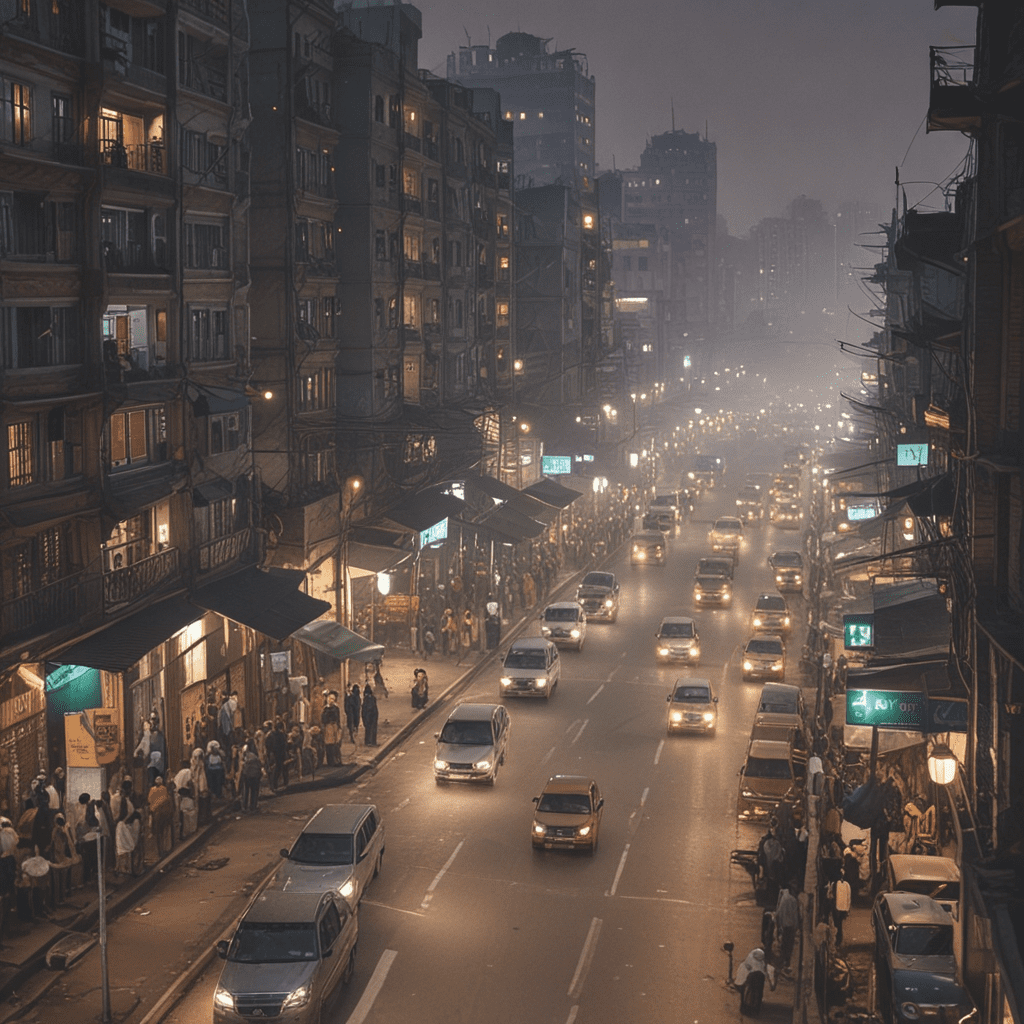
The Impact of Urbanization in Bangladesh
Introduction
Urbanization, the process of people moving from rural areas to cities, is a global phenomenon that has been occurring at an accelerated pace in recent decades. Bangladesh, a densely populated country in South Asia, has experienced significant urbanization in recent years, with the urban population growing from 22.5% in 2000 to 35.8% in 2020. This rapid urbanization has had a profound impact on the country's social, economic, and environmental landscape.
Causes of Urbanization
The urbanization of Bangladesh is driven by a complex interplay of factors, including:
- Economic opportunities: Cities offer better job prospects, higher wages, and access to education and healthcare, attracting people from rural areas.
- Environmental factors: Climate change and natural disasters are displacing people from rural areas, forcing them to seek refuge in cities.
- Social factors: Improved transportation and communication networks have made it easier for people to move to cities, while social and cultural transformations have also contributed to the urban drift.
Effects on Infrastructure and Services
The rapid influx of people into urban areas has put a strain on infrastructure and services. Cities in Bangladesh struggle to keep up with the demand for housing, transportation, water, and sanitation. This has led to overcrowded slums, traffic congestion, and a decline in the quality of public services.
Socioeconomic Consequences
Urbanization has significant socioeconomic consequences. On the one hand, it has contributed to economic growth and poverty reduction. Cities are hubs of innovation, entrepreneurship, and trade. On the other hand, urbanization has also exacerbated social inequality. The rapid growth of slums and informal settlements has led to a concentration of poverty in urban areas.
Challenges of Urbanization
The challenges of urbanization in Bangladesh are significant. They include:
- Slums and informal settlements: The rapid growth of slums and informal settlements in urban areas has created a host of problems, including poverty, disease, crime, and environmental degradation.
- Traffic congestion: Traffic congestion is a major problem in Bangladesh's cities, leading to lost productivity, air pollution, and accidents.
- Environmental degradation: Urbanization has also led to environmental degradation, including air pollution, water pollution, and solid waste management problems.
Strategies for Sustainable Urbanization
Addressing the challenges of urbanization requires comprehensive and sustainable strategies. These include:
- Integrated planning: Urban planning must be integrated and inclusive, considering the needs of all stakeholders, including the poor and marginalized.
- Investment in infrastructure: Investments in infrastructure, such as housing, transportation, water and sanitation, are essential to improve the living conditions of urban residents.
- Promotion of green cities: Cities should adopt green policies and practices to reduce environmental pollution and promote a healthy living environment.
Government Initiatives
The government of Bangladesh has recognized the challenges of urbanization and has implemented a number of initiatives to promote sustainable urban development. These include:
- National Urban Development Policy (NUDP): The NUDP provides a framework for sustainable urban development, focusing on improving living conditions, reducing poverty, and protecting the environment.
- Bangladesh Urban Resilient and Inclusive Growth (BRIG): The BRIG program supports urban development projects, including slum upgrading, infrastructure improvements, and community development.
Role of Non-Governmental Organizations
Non-governmental organizations (NGOs) play a vital role in supporting sustainable urbanization. They implement community-based projects, provide services to the poor and marginalized, and advocate for policies that promote equitable and sustainable urban development.
Conclusion
Urbanization is a complex phenomenon that presents both opportunities and challenges. By adopting comprehensive and sustainable strategies, and with the involvement of all stakeholders, Bangladesh can harness the benefits of urbanization while mitigating its negative impacts. Building more livable, equitable, and sustainable cities will contribute to the overall well-being of Bangladesh's population.
FAQ
What are the main causes of urbanization in Bangladesh?
Urbanization in Bangladesh is driven by a complex interplay of factors, including economic opportunities, environmental factors, and social factors.
What are the challenges of urbanization in Bangladesh?
The challenges of urbanization in Bangladesh include slums and informal settlements, traffic congestion, and environmental degradation.
What is the government of Bangladesh doing to address the challenges of urbanization?
The government of Bangladesh has implemented a number of initiatives to promote sustainable urban development, including the National Urban Development Policy (NUDP) and the Bangladesh Urban Resilient and Inclusive Growth (BRIG) program.
What role do NGOs play in supporting sustainable urbanization in Bangladesh?
NGOs play a vital role in supporting sustainable urbanization by implementing community-based projects, providing services to the poor and marginalized, and advocating for policies that promote equitable and sustainable urban development.


